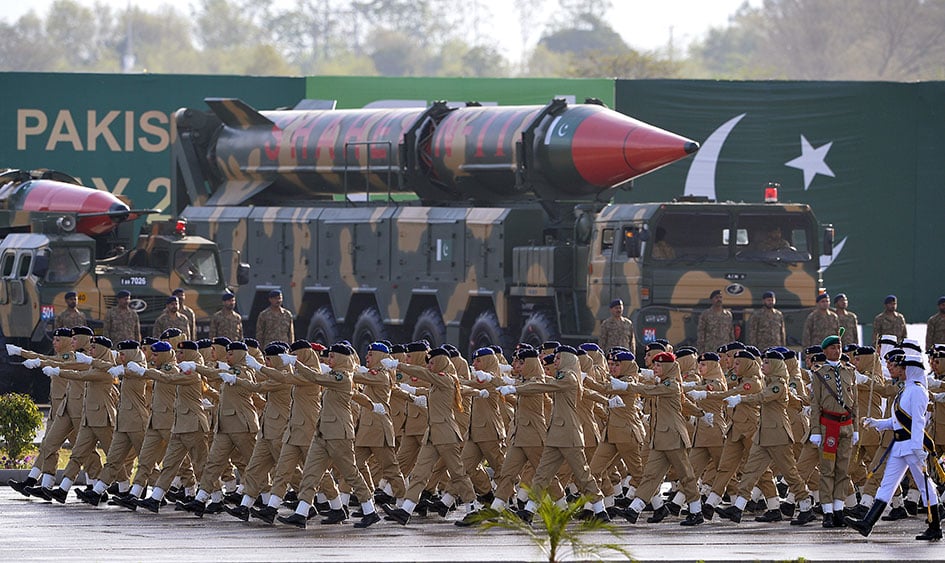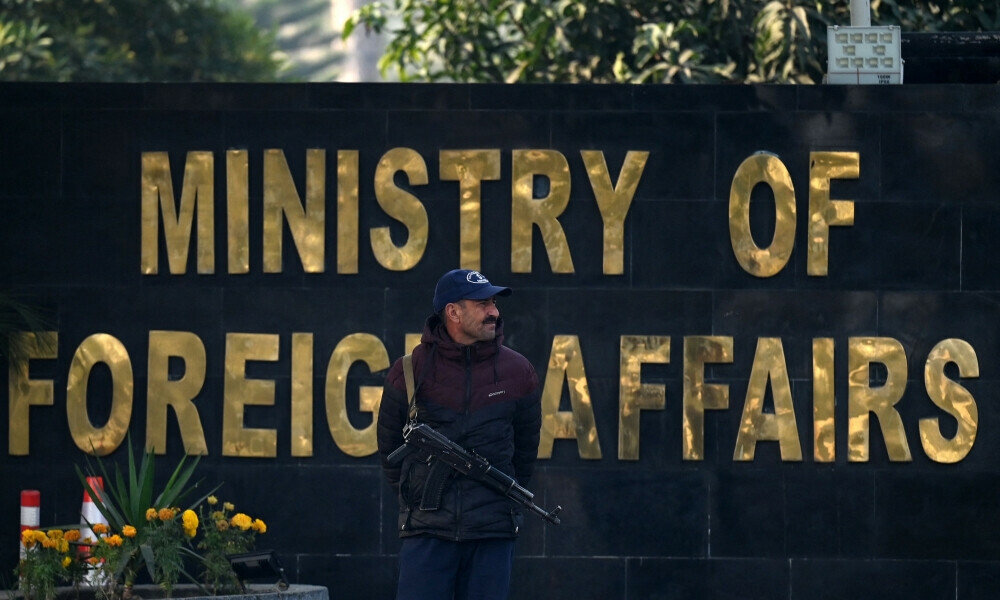Pakistan’s Foreign Office (FO) dismissed claims of any commitment to providing nuclear support to Iran. During her weekly press briefing on Friday, Foreign Office Spokesperson Mumtaz Zahra Baloch categorically rejected a report by the Jerusalem Post, which suggested that Pakistan intended to supply Iran with Shaheen-III medium-range ballistic missiles if the conflict between Iran and Israel escalated.
“These reports are patently false,” Baloch stated, addressing the rumors that had begun circulating in international media. She emphasized that such baseless allegations must be scrutinized for their source and the malicious agenda they may serve. “Before paying any attention to such reports, it is important to reflect on the source behind them and the malicious agenda they carry,” she added, according to APP, Pakistan’s official news agency.
Baloch highlighted the sensitive nature of the current situation in the Middle East, urging all parties, including the media, to avoid spreading fake news that could exacerbate regional tensions. “This is a critical time in the Middle East. We, therefore, urge all parties, including the media, not to indulge in the peddling of fake news,” she cautioned.
Pakistan’s Foreign Office has repeatedly stressed the importance of peace and stability in the Middle East, advocating for diplomatic solutions to conflicts. The recent accusations come at a time when tensions are already high in the region, with the ongoing conflict between Israel and Palestine and the broader implications for neighboring countries.
Pakistan has historically maintained a neutral stance in Middle Eastern conflicts, opting for diplomatic engagement rather than military involvement. The country’s leadership has often called for peaceful resolutions through dialogue and has offered to mediate in conflicts, emphasizing the need for a collective approach to regional security.
In addition to addressing the false nuclear claims, the Foreign Office also responded to Indian media reports that accused Pakistan of involvement in recent developments in Bangladesh. FO Spokesperson Baloch dismissed these claims as another example of India’s persistent obsession with Pakistan. “Indian political ledgers and their media have a habit of blaming Pakistan for their failures in domestic and foreign policy,” she remarked, as quoted by Radio Pakistan.
Baloch further clarified that Pakistan enjoys positive and growing relations with Bangladesh, which have strengthened over the past several years. This statement was in direct contrast to the narrative being pushed by certain Indian outlets, which suggested Pakistani interference in the recent unrest in Bangladesh.
The situation in Bangladesh has been particularly volatile, with widespread violent protests erupting in July over public sector job quotas for families of veterans from the country’s 1971 independence war. The protests led to the eventual ousting of Sheikh Hasina, who had been in power for 15 years.
The demonstrations reached a peak when the Bangladeshi army intervened to restore order, leading to the formation of an interim government. General Waker-uz-Zaman, the army chief, announced the establishment of a caretaker setup, with Nobel laureate Professor Muhammad Yunus being appointed to lead the interim government.
The political turmoil in Bangladesh has drawn attention from neighboring countries, including India and Pakistan, with both nations monitoring the developments closely. However, Pakistan has consistently denied any involvement in the internal affairs of Bangladesh, focusing instead on maintaining and improving bilateral relations.
The recent allegations against Pakistan, whether concerning its nuclear capabilities or involvement in foreign political matters, highlight the challenges the country faces in managing its international image. With tensions running high in both the Middle East and South Asia, Pakistan’s leadership has taken a firm stand against what it perceives as attempts to destabilize its diplomatic efforts.
The false claims regarding nuclear support to Iran, in particular, have the potential to strain relations with other countries in the region. However, Pakistan’s prompt rejection of these reports underscores its commitment to regional stability and its opposition to the proliferation of misinformation.




